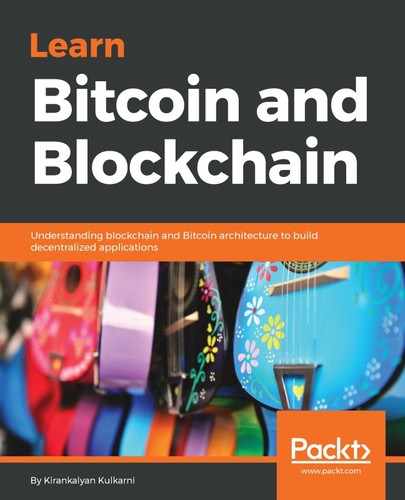We discussed Bitcoin and blockchain in earlier chapters, and how this entire technology is the next big innovation after the internet. Besides all the unique features of the blockchain, such as immutability, cryptography, and security, smart contracts make blockchain an even more innovative technology. Besides the P2P network and private key cryptography, blockchain program is something that governs the execution of money flow in a programmatic manner. These programs are a kind of smart contract that remains at the core of blockchain. If you look at a typical standard contract agreement between two parties, it basically dictates the terms of a relationship, where these terms or relationships are then usually enforced by legal entities. On the other hand, smart contracts enforce their relationships with smart code written using cryptographic techniques. In simple words, smart contracts are programs that execute themselves exactly in the way written by their creators or programmers.
This concept was first conceptualized in 1993 by Nick Szabo, a famous computer scientist and cryptographer. He made the analogy of a digital vending machine and explained how users could input anything, such as data or a value, and receive a specific item, similar to a real-world snack or soft drink that we could get from a vending machine. In the case of blockchain, the user would create a smart contract by writing a program and pushing the data to that contract so that it could execute the desired command.
